
Academic and Research Cooperation (Model)
Targeting for One Out of a Hundred: Oriental Institute of Technology Stands Proudly on the International Stage
Targeting for One Out of a Hundred: Oriental Institute of Technology Stands Proudly on the International Stage
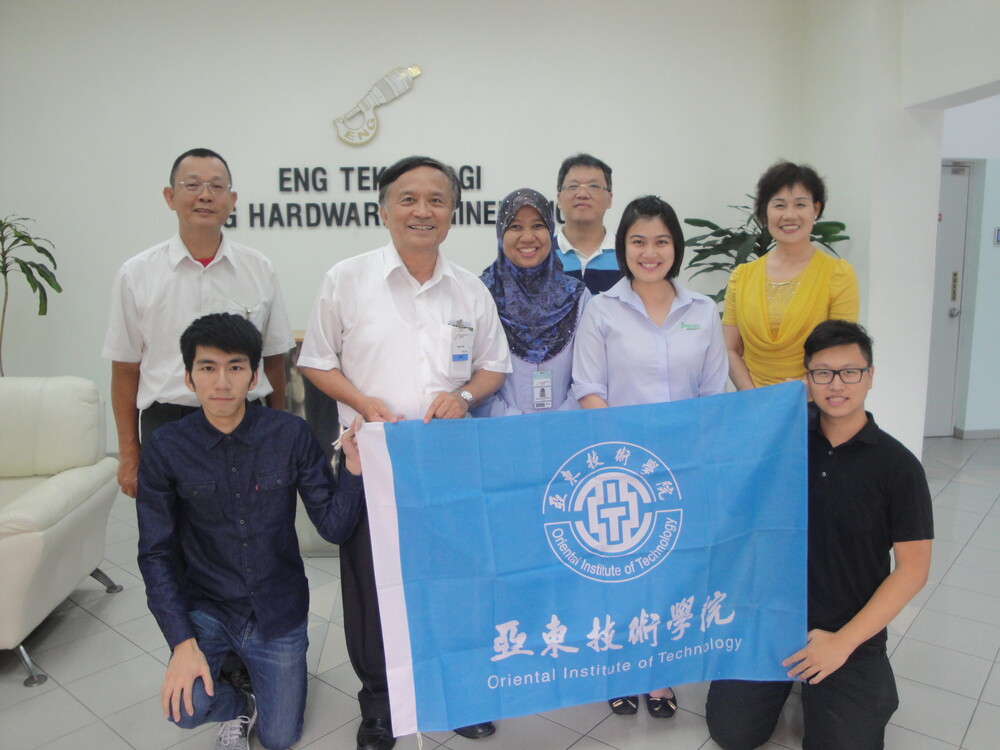
The internship program initiated by Oriental Institute of Technology (OIT) in collaboration with Malaysian enterprises has entered its 10th year without suspension. The program steadily attracts a certain number of participants each year, and the total person-count goes up to 234 for the time being. To cope with the difficulties in language, culture and etiquette that students may encounter during their overseas internship, the institute’s authority administered a guidance program, inviting professionals to provide relevant training and designating faculty members to accompany the interns throughout the entire period of internship. Accordingly, this large-scale initiative not only provides the students with practical training, but also broadens the faculty members’ experience in international exchange. This was the reason why we selected it as an exemplar.
We had a total of 149 entries from 44 colleges/universities for the open call for proposals of bilateral higher education exchange. OIT stood out as a dark horse with its impressive performance. It is just a college-level institution located in a corner of the urban area of New Taipei City. It even lacks student dormitory. Nevertheless, it won the jury’s recognition and stood out from so many competitors. There must be something we can learn from it.
Developing overseas internship program with a forward-looking vision
The interview happened to be scheduled during morning rush hour on a rainy Monday. The president had been waiting for us in his office when we finally managed to escape from the traffic jam and arrive at the institute in Banqiao District. Having extensive experience of working in the textile industry, Mou-Chuan Hwang, the president of OIT, gave us an impression that he is not so much a scholar as a company’s chairman or CEO because all he talked about was closely linked to practical matters even on the aspects of internationalization and international exchange.
Mou-Chuan Hwang noticed the bottleneck for the career development of OIT’s students as early as a decade ago when he was the Dean of the R&D Office. He worried that the institute would suffer competitiveness plunge for its lack of distinguishing features if its students still serve their internship within the domestic scope. To remedy this deficiency, he made a bold attempt by taking students to do overseas internship in China, Japan, Australia and Malaysia. The institute even offered to cover one-third of the internship expense to encourage students’ engagement, only to receive students’ lukewarm response.
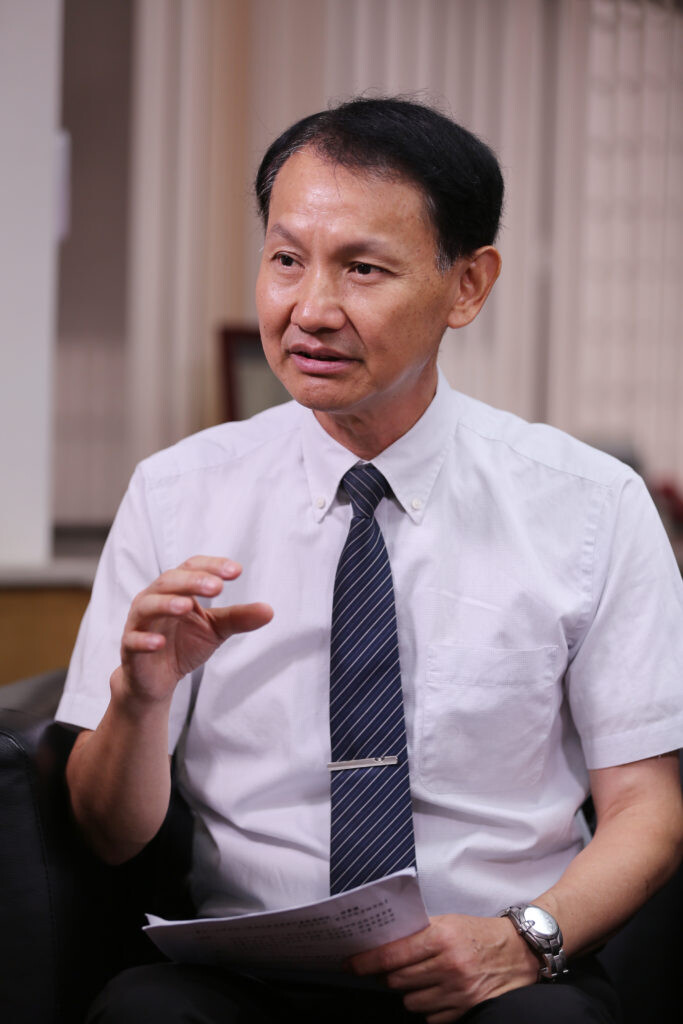
Mou-Chuan Hwang, the President of Oriental Institute of Technology
“Most private vocational college students come from lower-middle-class families. In addition to studying, they have to repay student loans by working part-time on summer vacation. Going abroad means losing two months’ income.” Mou-Chuan Hwang racked his brains and suggested the president at that time to increase the subsidy to cover two-third of the internship expense. Still, students showed no enthusiasm for the program even though the president approved Hwang’s proposal. Hoping that students could expand their horizons through the internship, Hwang campaigned for the program tirelessly and encouraged students one by one. “It worries public university students that they may get no chance of going abroad, and they are willing to pay at their own costs for such an opportunity. Contrarily, our students remain reluctant to give it a shot even with subsidies. It was a taxing task to develop overseas internship program at that time,” Hwang could not help but lament.
The internship program in collaboration with enterprises in Malaysia was a wonderful coincidence. A decade ago, through the introduction of Sayling Wen Cultural & Educational Foundation, students from 10 departments of OIT served their internship in 11 enterprises ranging from health care and general merchandise to other industries in Malaysia. We tried to connect the content of internship with these students’ majors as closely as possible. They won the positive recognition by the collaborating enterprises for their creditable performance, and our bilateral cooperation has thus been secured to date. Those who finished their overseas internship started to share their experience with their juniors. Gradually, the institute’s authority need not advocate the program as strongly as before, since the senior students’ experience sharing is the best advertisement for it.
Gaining from overseas internship beyond the confines of specialized fields
At present, the annual overseas internship program is divided into three groups and proceeds in three places, including Malaysia as well as Suzhou and Shaoxing in China. Since the internship in Suzhou and Shaoxing takes place at the affiliated enterprises of the Far Eastern Group, the interns there not only confront little difficulties in communication and living, but also tend to receive special care from the cadres. Wen-Kuei Lai, an assistant professor of the Department of Materials and Textiles, was in charge of the Suzhou group in 2016 and 2017. He mentioned that the biggest challenge for the interns is to adapt themselves to the working environment of the factories. Since they have to stay in sultry factory buildings for many hours every day, together with the gap between theory and practice, some students found the internship toilsome and quitted it on the grounds of maladjustment.
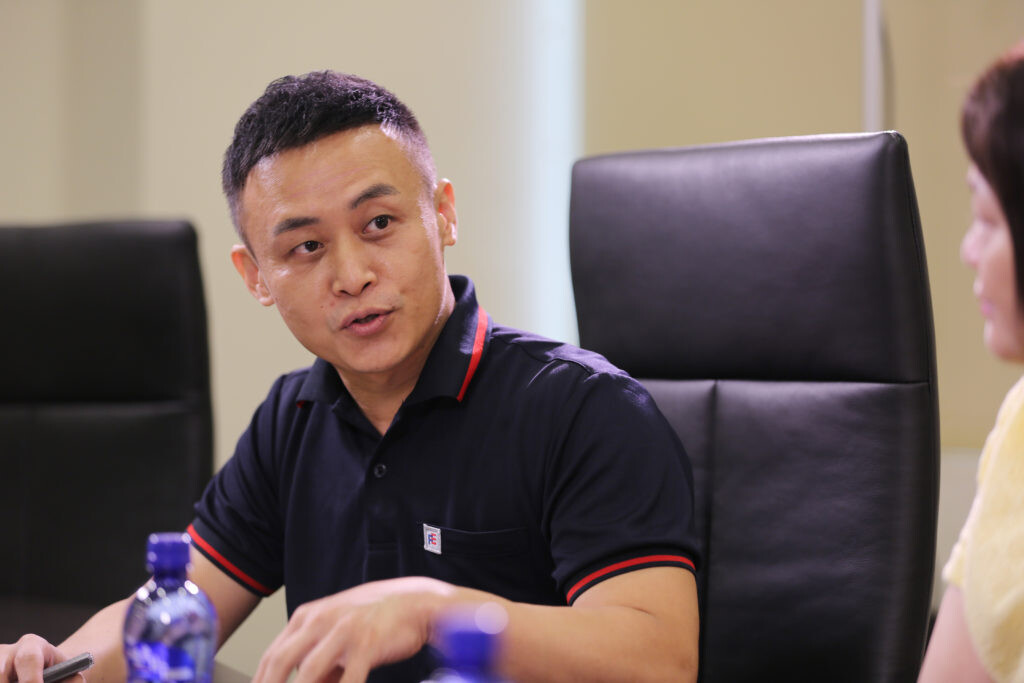
Wen-Kuei Lai, an assistant professor of the Department of Materials and Textiles
Wen-Kuei Lai stressed that the environment, content, working time and schedule of the internship were explained with videos and pictures in the orientation, and the upper-classmates who finished the internship would impart pertinent information. Nonetheless, the real situation of the internship may confound some interns’ expectations. In addition to enhancing their professional capacity, the overseas internship entailed the interns’ adaptation to alien environments and the management of interpersonal relationships.
Serving his internship at a factory in Suzhou, Jia-Zhan Wang adapted well to the environment and embraced the hardships. He developed a clearer vision for his future after the eight-week overseas internship. He stated that “China’s competitiveness lies in the quantity of its products and long working time. Its people tend to have wolf-like aggressiveness and apply utilitarian thinking. In contrast, Taiwan’s greatest strength lies in the quality of its products. Exquisite products with high item price may be a more appropriate option for Taiwan. I plan to work in Taiwan and manifest the Taiwanese value!”
Are language skills definitely the primary challenge for the interns in Malaysia? Jie Li, a student in the Department of Communication Engineering, OIT, did not encounter any problem in this regard. “The company designated a Chinese-speaking supervisor for me probably because they knew that I speak Chinese. In addition to language skills and professional capacity, I learned a lot about the culture and life in Malaysia.”
It turned out that the Malaysians’ sense of time was the most daunting challenge for Jie Li and other interns there. Malaysians enjoy a leisurely lifestyle, which often bewilders the interns from Taiwan who get used to a hectic lifestyle. “We had different interpretation on punctuality. It was not until a period of time later that I accustomed myself to this cultural difference,” Jie Li said.
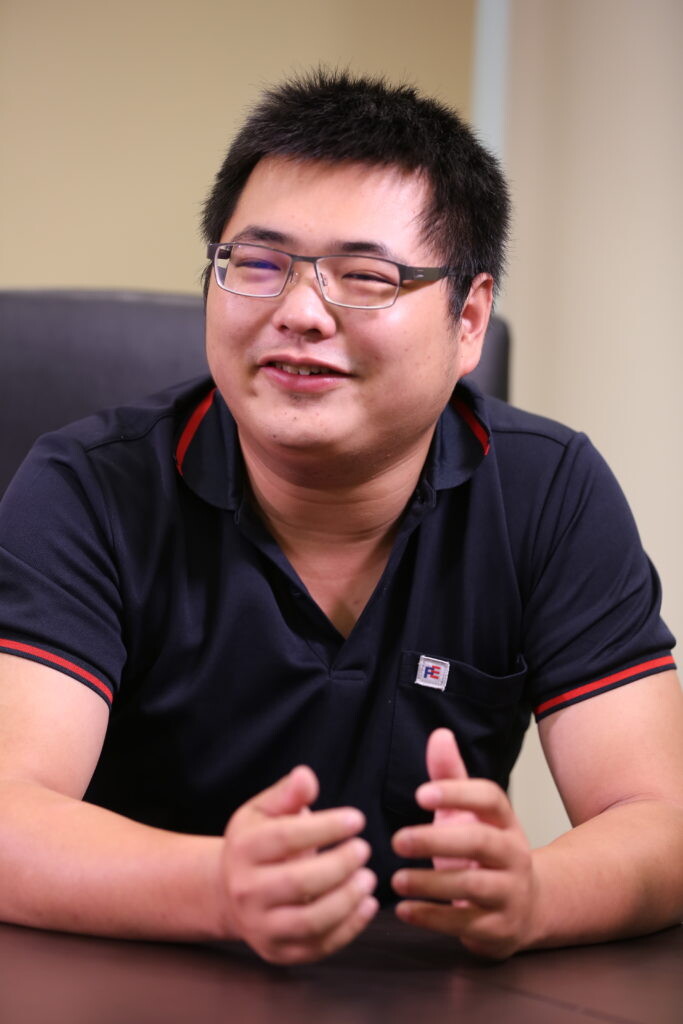
Jia-Zhan Wang, a student in the Department of Materials and Textiles, OIT
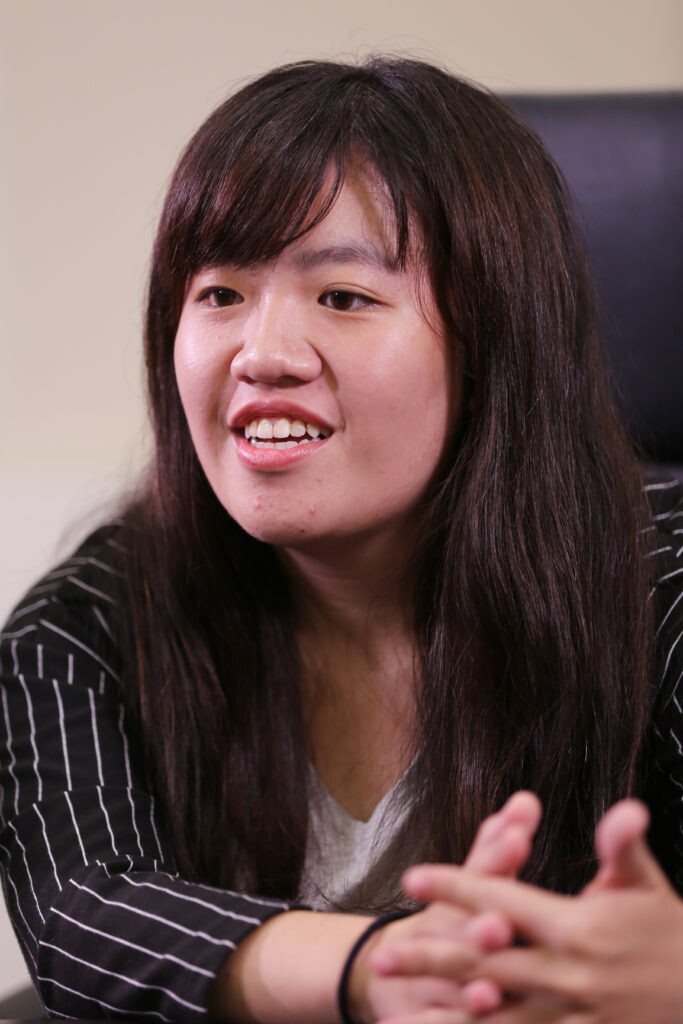
Jie Li, a student in the Department of Communication Engineering, OIT
Yen-Qin Zhang, a lecture of the Department of Marketing and Logistics Management who accompanied the interns in Malaysia, identified a rarely seen dimension of the students there. She said bluntly without euphemism that she always regards them as princes or princesses well protected by their parents in every possible way when they are in Taipei. “I was surprised that these students have changed. Their considerate behavior marked their coming of age.” After the students got off work, she used to join them for dinner. The students always voluntarily cleaned the environment in an orderly manner. They also behaved cautiously and conscientiously when serving their internship.
An intern born with positive attitude complained about the slow working pace of the company. Encouraged by Yen-Qin Zhang, the intern used his initiative and hence reaped greater gains than his fellow interns did. Zhang still felt deeply touched by these students’ performance during their overseas internship when she shared their stories with us.
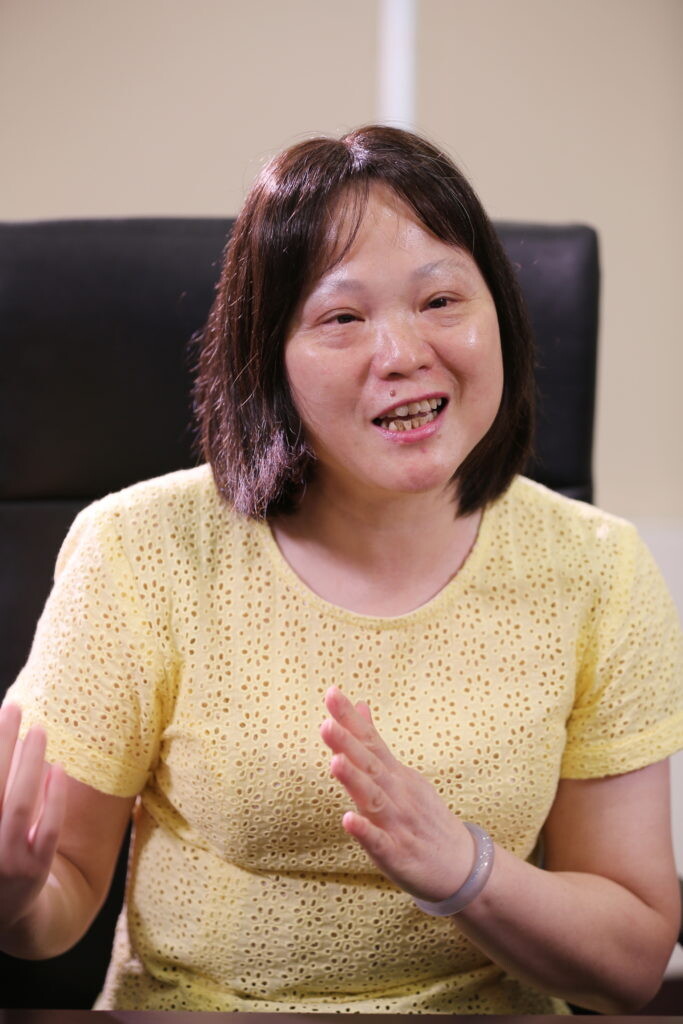
Yen-Qin Zhang, a lecture of the Department of Marketing and Logistics Management
Knowing its own strength, collaborating and exchanging in a neither obsequious nor supercilious manner
Sheng-Ta Hsieh, the Dean of the R&D Office, OIT, explained that OIT has only about 20 partner colleges and universities. Since we know our own position and expertise, we favor not so much prestigious partner institutions as those similar to us in terms of scale and expertise. By doing so, we can avoid putting our students in an inferior position during the exchange for reasons of vanity.
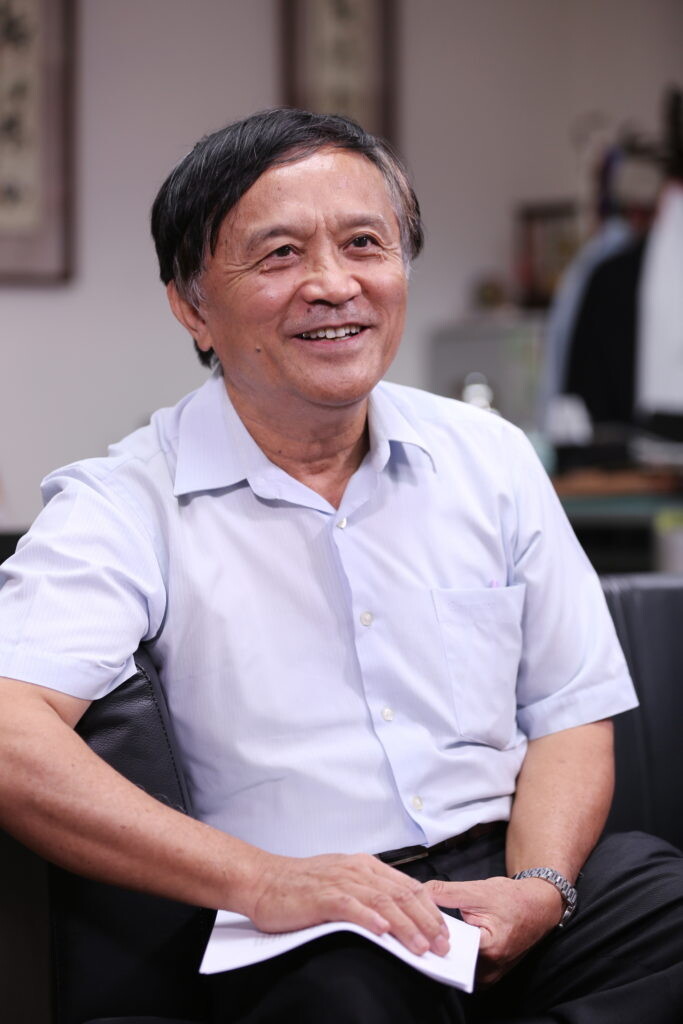
Shu-Wu Xu,the Director of the Center for Career Development
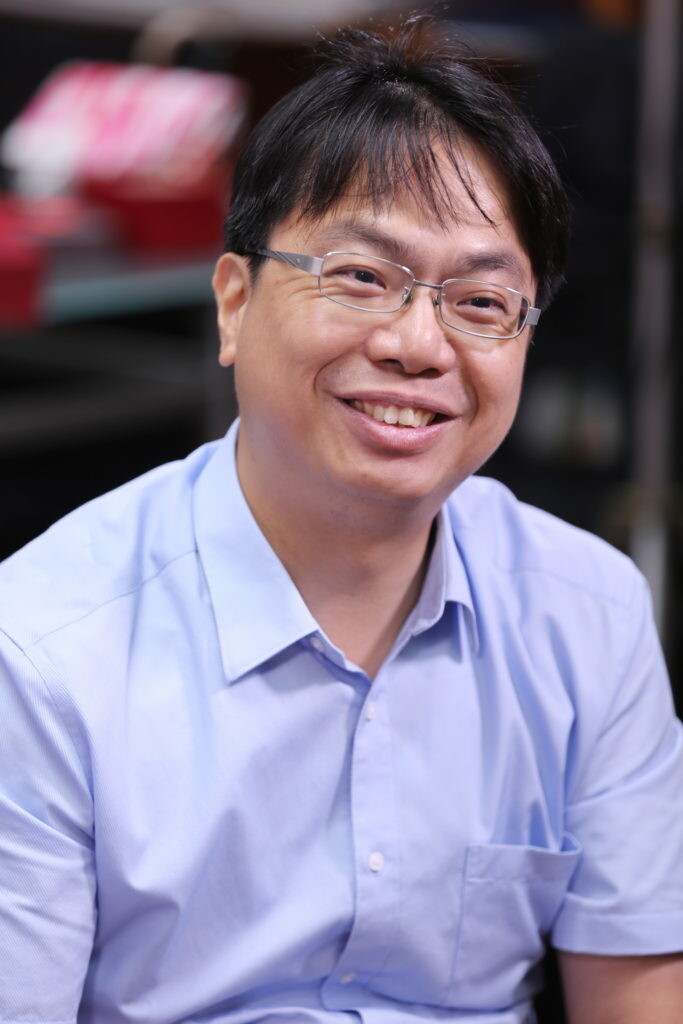
Sheng-Ta Hsieh,the Dean of the R&D Office, OIT
In addition to its professional expertise, OIT is also known for is its basketball team led by famous twin coaches Bi-Zhen Deng and Bi-Yun Deng. In July 2017, the Queen’s College, Hong Kong made sports exchange with OIT and reaped significant gains. No sooner did the delegation returned to Hong Kong, than it applied OIT’s training scheme to their basketball team with OIT’s consent. “This is another form of international exchange and spread of influence,” Sheng-Ta Hsieh claimed.
“One out of a hundred” is Mou-Chuan Hwang’s prime objective, whether in terms of internship, volunteer service, contests or sports. Specifically speaking, it means that out of every one hundred students, one should either study abroad if he/she is a student at OIT, or be enrolled in OIT if he/she is a foreign student. However, he knows well that it is difficult to boost foreign students’ enrollment without student dormitories. It is the next challenging task that OIT needs to undertake. Leaving OIT’s hardware development aside, its rigorous professional training as well as passionately devoted faculty members and administrators have collectively formed the solid foundation for this institute which is near the half-century mark.


